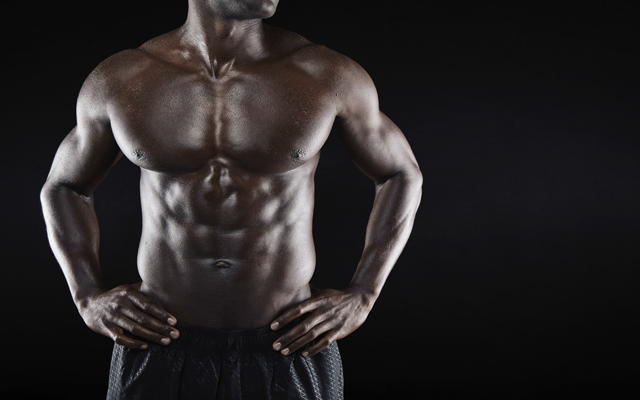The short answer: Yes. Gaining muscle and losing fat can happen when your nutrition and exercise are aligned properly. However, most people go about it in the wrong way.
Being overly restrictive with your diet is the main offender when it comes to putting on muscle while burning away belly inches. A proper training program should reduce energy intake properly while not drastically cutting vital nutrients like protein, essential fats, and carbohydrates.
In fact, it’s better to take a more gradual approach to eating less (reducing calories by 15 to 20 percent) while maintaining good nutrition, to lose around one to two pounds of fat a week (1). For most active individuals, that translates into about 500 to 1,000 fewer calories per day if the goal is to lose one to two pounds of fat a week (1, 2).
While losing fat, you want to be careful about losing muscle tissue. Muscle tissue takes a long time to build and losing it is not only frustrating, but could also lead to a drop in metabolism and physical function. In fact, overdoing the diet and lowering protein too much leads to exactly that—a decreased metabolic rate and reduced physical function (3).
In a recent weight loss study using athletes, researchers compared gradual weight loss to rapid weight loss (2). They found that those that lost weight gradually preserved or gained more muscle on average.
Weight loss at the end of the study was not significantly different. The subjects lost weight at a rate of one versus more than two pounds per week. At the same time, the subjects exercised and followed a higher protein diet over the 12-week study to preserve lean muscle mass. At the end of the study, subjects in the rapid weight loss group cut calories by close to one third of their needs, while the slow rate group reduced by 19 percent.
The gradual weight loss group lost 10 percent more body fat and even gained a significant amount of lean mass. On average, the gradual weight loss group lost 10 pounds of fat and added two pounds of muscle. The group that drastically cut calories lost seven pounds of fat and lost over half a pound of lean body mass.
Based on the study’s results, the researchers suggest that if you drastically cut your nutrient (especially protein) intake during weight loss, you will inhibit fat burning and lessen muscle building.
Weight training, feeding your body high-quality protein—such as IsaPro® and IsaLean® Shakes—and reducing calories gradually is going to get you where you want to be. Remember, you need to feed your lean body mass as it accounts for 30 to 85 percent of your total weight (4). You don’t want to lose this metabolically active tissue that helps burn fat.
References
- Rankin JW. Weight loss and gain in athletes. Curr Sports Med Rep. 2002 Aug;1(4):208-13.
- Garthe I, Raastad T, Refsnes PE, Koivisto A & Sundgot-Borgen J. Effect of two different weight-loss rates on body composition and strength and power-related performance in elite athletes. Int J Sport Nutr Exerc Metab. 2011 Apr;21(2):97-104.
- Koral J & Dosseville F. Combination of gradual and rapid weight loss: effects on physical performance and psychological state of elite judo athletes. J Sports Sci. 2009 Jan 15;27(2):115-20.
- Koutedakis Y, et al. The effects of two different periods of weight-reduction on selected performance parameters in elite lightweight oarswomen. Int J Sports Med. 1994 Nov;15(8):472-7.





